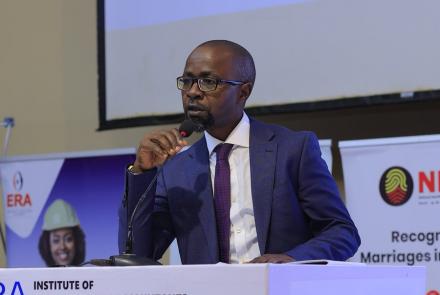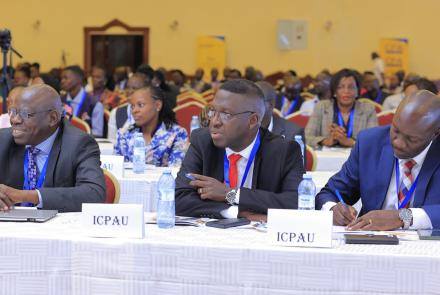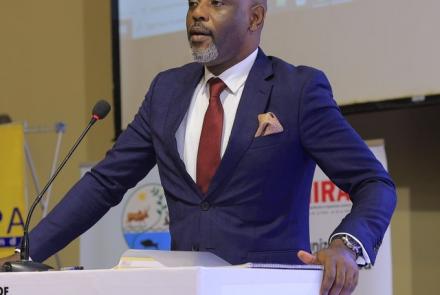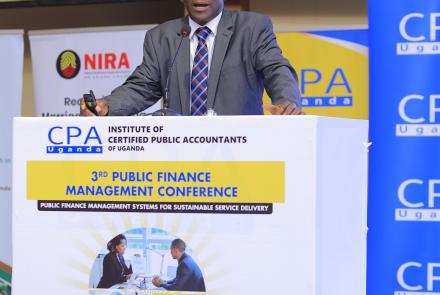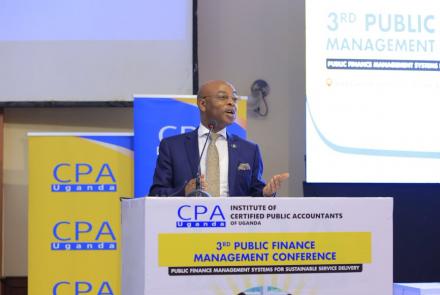All individuals who operate within the space of Accountancy should be on the Register of Accountants for the Country.
On 10th November, accountants across the globe commemorate the International Accountants Day. 10th November coincides with the date of publication of the very first text on double entry (a term commonly used in accounting) by Luca Pacioli, also known as the father of accounting. On this day, accountants are honoured for their crucial role in resource management, which ultimately is the thrust for the sustainability of organisations.
The role of accountants has since evolved over the years from merely keeping records to more strategic roles. Accountants are critical thinkers and business advisors, tasked with interacting with various internal and external organisational resources, to ensure a good return for the business.
As the profession commemorates 10th November, it is imperative to take stock in Uganda. The roll of professional accountants in Uganda is maintained by the Institute of Certified Public Accountants of Uganda. This register has no more than 3,500 members. Yet there are over 200,000 registered Small and Medium Enterprises (SMEs) in Uganda. This presents a wide disparity in the ratio of SMEs to professional accountants.
A professional accountant is one who has completed a professional accountancy course benchmarked on the 'International Federation of Accountants Standards on Education for Professional Accountants', for example, the Certified Public Accountants (CPA) course. Professional accountants add tremendous value to organisations as they possess the required skills and competencies. CPA is designed to equip students with relevant technical and professional skills, as well as the right professional values and attitudes that enable them to provide quality services, in an environment of increasing complexity and advancing technology.
Because accountants are responsible for financial resources and operate in public interest, the conduct of an accountant requires high ethical standards and high levels of professional competence. Therefore, it is not enough for an accountant to have a professional qualification but also to register and be counted as one.
There are five global fundamental principles of ethics for professional accountants:
- objectivity, professional competence and due care, confidentiality, and professional behaviour. In Uganda, these principles are embedded in the Code of Ethics for the Institute of Certified Public Accountants of Uganda (ICPAU), which should be followed by all accountants in the country. Members of ICPAU who breach the provisions of the Code of ethics are liable to disciplinary action and penalties include: the imposition of fines, suspension from membership and striking the name of the accountant off the roll of accountants.
Membership with ICPAU in Uganda is critical for the observance of national laws as well as an affirmation to uphold public interest i.e carrying on accountancy profession with due regard to Uganda's publics. It is becoming common for the society to celebrate individuals who do not espouse the principles of the laid down regulatory framework in the country and this makes it difficult to curb or deter fraud through professionalism.
ICPAU is by law tasked with the duty of regulating the conduct of accountants and practicing accountants in Uganda but this can only be made possible if all individuals in the area of accountancy profession register with ICPAU.
Accounting standards evolve nearly annually, to take into account technological advancements and fundamental developments in business and finance. Membership with ICPAU, therefore, ensures that accountants remain professionally competent and relevant in a dynamic business environment.
Furthermore, membership with ICPAU is a stepping stone for accountancy career advancement in Uganda. The Accountants Act, 2013 requires accountants in senior positions of organisations, both public and private, with public interest to be members of ICPAU. This is an attestation to the desired public accountability.
The merits of membership notwithstanding, accountants are meant to be the champions of compliance in organisations that they serve. In 2017, ICPAU adopted the Non-Compliance with Laws and Regulations (NOCLAR) standard, which requires accountants to identify and disclose issues of non-compliance within their area of service to relevant authorities. It therefore means that a fundamental area of compliance by accountants is registration with the registrar of accountants in Uganda i.e. being members of ICPAU.
The public and indeed all organisations interacting with accountants are encouraged not to celebrate non-compliance but to ensure that together we clean up the space of accountancy in Uganda in order to realise the fruits of accountancy professional in driving economic growth of our Country.


